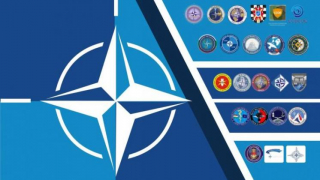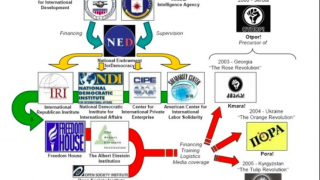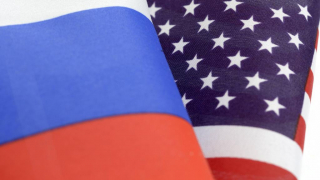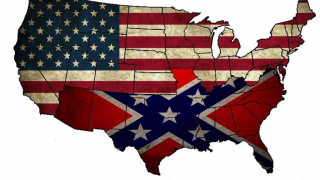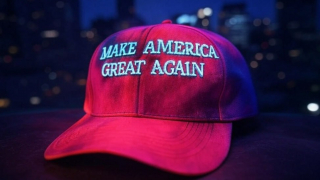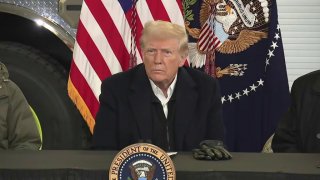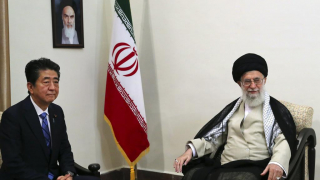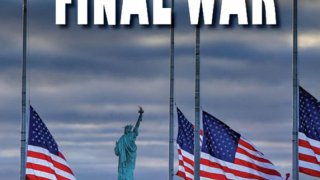Trade War = Cold War?
Wednesday, 29 May, 2019 - 17:13
The US’s trade war against China has kicked into high gear with another conflict heating up. The victims are Huawei, Chinese techno-giant, one of the world leaders in smartphones trade and Apple’s direct rivalry: the corporation is blacklisted from US’ domestic trade. Trade unions are only possible after official permission from the White House is settled which seems to be almost impossible to get. Not even trying, Google, Broadcom, Xilinx and Intel dumped Huawei. But are the Chinese on the losing side here?
The first sign of not-so-good intentions burst out in December with the arrest of Meng Wanzho, Huawei CFO. The daughter of Huawei’s founder was accused in selling American technologies to Iran, American’s considered foreign enemy. The explanations were not so well received among the Chinese: Global Times saw this arrest as a deliberated move against Huawei.
The drastic measures were later explained by Trump as good intentions, since it’s suggested by many that Huawei and ZTE are direct partners of the PRC’s Special Forces who collect the Americans’ personal data. The president himself advanced the enactment of National Defense Authorization in August 2018 that clearly stated the ban to buy or use the devices of both corporations. Huawei’s managers consider this ban anticonstitutional and are now fighting for proving them right on a legal level. The hearing is to take place on September 19th and, as experts claim, might take several months.
If the Chinese side is found right, Huawei will be removed from the black list and will be able to commit trade in the USA. No matter how often the White House was picking a fight: Huawei’s managers repeatedly stated the importance of the union with American partners and underlined their unwillingness to pull out from it. With that said, the partnership that seemed to work so well for both sides, might resume.
If the American side is found right, the Chinese manufacturer will have to look for alternative to American technologies. It means no implemented Google Apps: no Google Maps, YouTube, Gmail. Richard Yu, the head of Huawei Consumers Business Group, mentioned in March in an interview to German “Die Welt” that the corporation was then working on developing own operation system Kirin OS in case of a conflict. He hoped, though, that wouldn’t happen, as “Huawei benefit from Google and Microsoft partnership”.
Huawei is still in the driving seat in the PRC. With the introduction of home-developed OS and the further integration of applications and 5G network, the corporation might become the one to shape technological progress of China for years to come. Whether or not other countries are ready to purchase Huawei’s products depends on sustainability of the upcoming system. Should this happen, the USA’s attempts to get rid of China might backfire drastically with Apple already left behind in the percentage of worldwide trade.
The in-moment damage for the Americans is, with the loss of Chinese trade, as estimated by CNN, around $11 billion. Frightened by possible material losses, the White House handed out a temporary license that allows Huawei to buy all the necessary equipment for updating already existing products in course of 90 days. The production of new devices is prohibited. This grants American companies with the opportunity to finish what they started and to find new business partners to rebuild economic balance.
The people of China refused to stay away too – they put a boycott on Apple, they abandon McDonalds and KFC, imposing a serious threat of depriving the USA of a significant financial sector. Some managers see iPhone purchase and even a trip to the States as reason for sacking a person, yet the Chinese don’t object it. It means Huawei lose nothing in domestic economy and, probably, they gain even more. What’s questioned is how to wage the policy of external trade.
The whole world might face negative consequences, should the USA’s actions stall the 5G installment. Jeffrey Sachs, a US’ economist, told Global Times it’s the violation of international rule of law and encouraged China to call for help from WTO, EU and AU. The CEO of Huawei, Rén Zhèngfēi, though, doesn’t see any reasons why 5G shouldn’t happen and is sure that Huawei will hold the leadership alongside Apple and Samsung.
More News
23.12.2024 - 14:07
23.12.2024 - 14:01
23.12.2024 - 12:32
23.12.2024 - 12:09
23.12.2024 - 09:48
23.12.2024 - 01:00
22.12.2024 - 23:01





